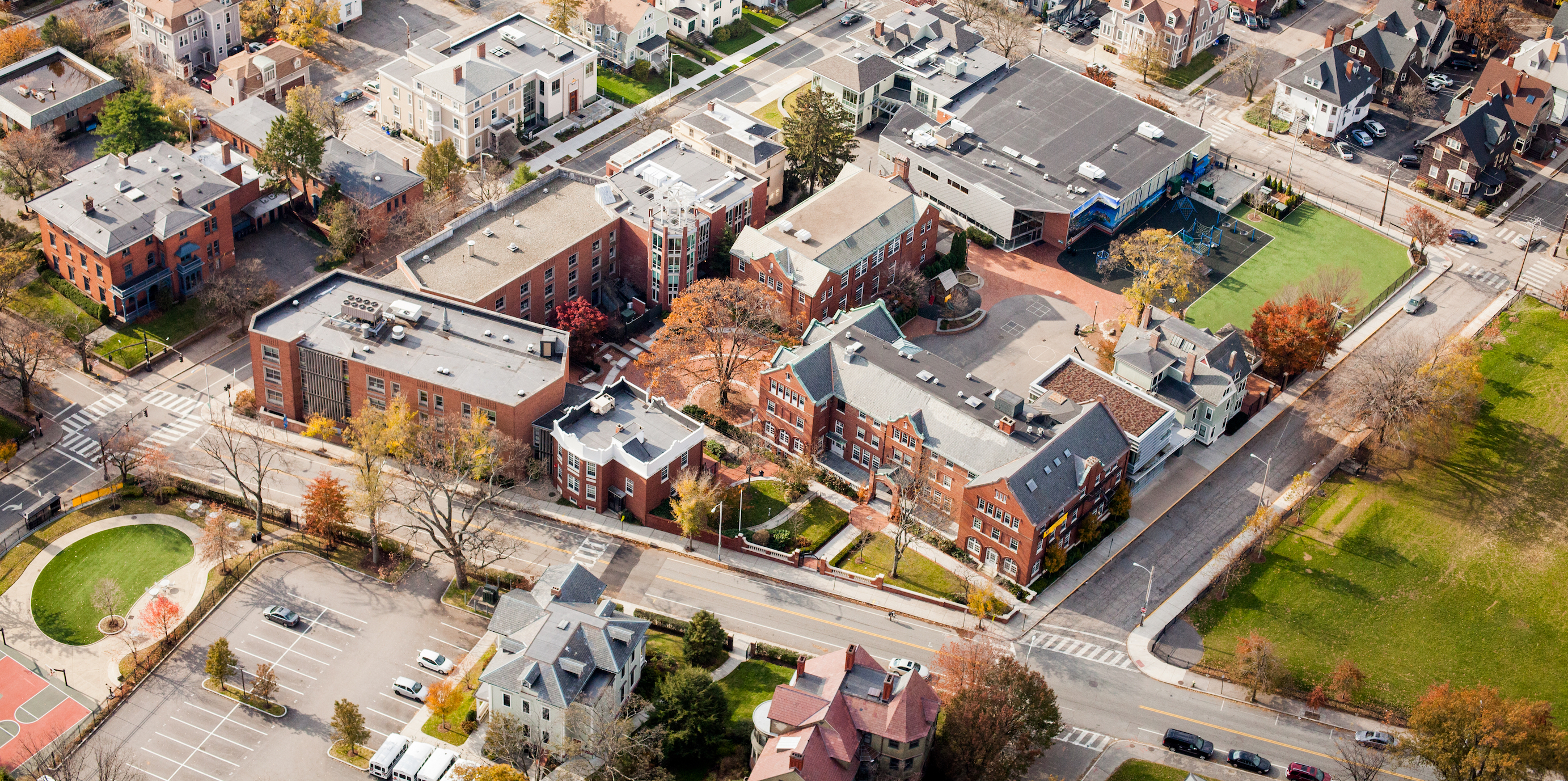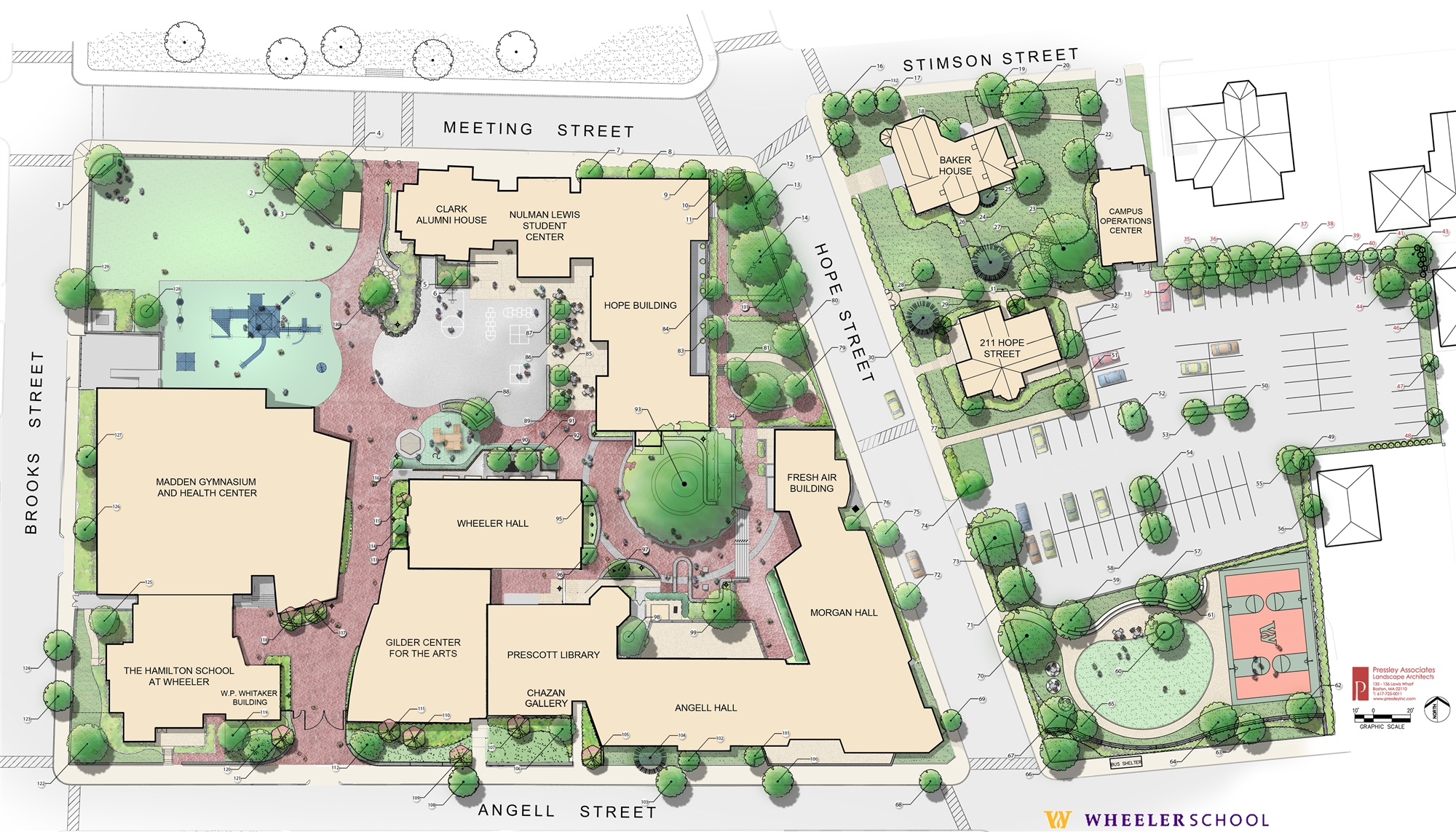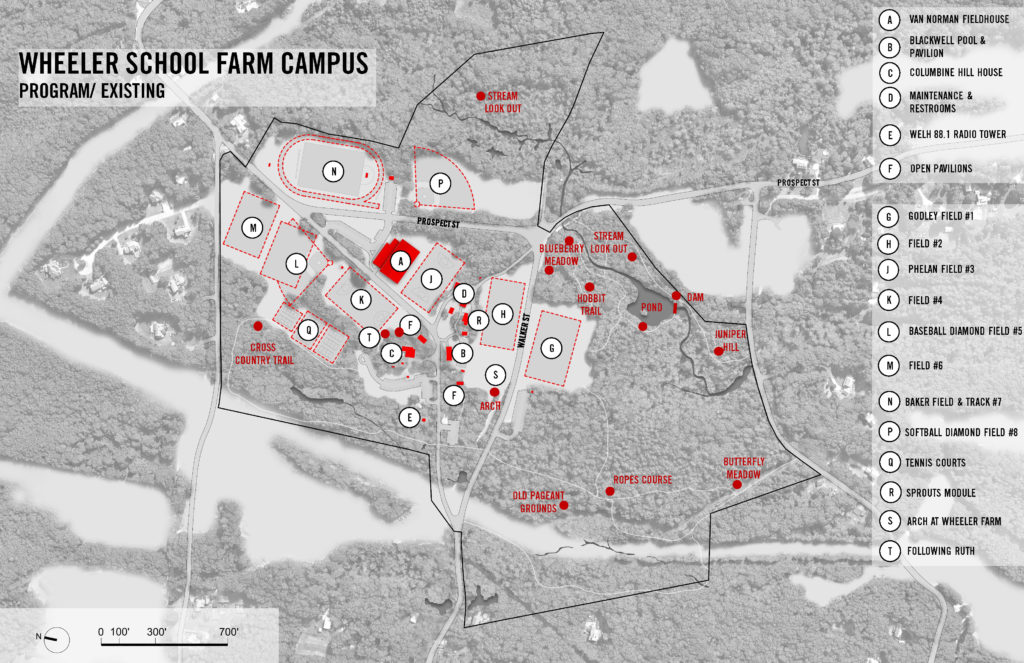Directions
Two campuses. One learning environment.
The Providence Campus
Wheeler’s main campus in Providence encompasses five acres — with buildings and recreation areas crossing both sides of Hope Street and ranging in age from the late 1700s (the Clark Alumni House foundation) to our newest facility opened in 2014, the Gilder Center for the Arts. Wireless access covers the campus in all spaces, inside and outside. Both campuses boast large-scale pieces of public art by noted international artists. The main campus buildings surround an inviting, well-lit courtyard and outdoor dining area as well as a colorful and enviable playground area suitable for students of all ages. New, safe, organic play surfaces that use an infill blend of coconut fiber and cork invite play or relaxation. A vegetative roof sits atop the Nulman Lewis Student Center and is part of an environmentally, award-winning, campus stormwater management system.
The Farm Campus
Once a real working farm to supply the then boarding school needs of the Providence campus, Wheeler’s Seekonk, MA campus began first in 1913 as a summer retreat for founder Mary Wheeler where she welcomed select American Impressionist artists to teach Wheeler students (when not abroad at her summer arts program in Giverny, France.) The 120-acre “Farm” is home today to exceptional athletic fields and facilities as well as the experiential, hands-on Sixth Grade Farm Program. Solar panels on the roof of the Van Norman provide the electrical power source for the 120-acre facility. Take a flight over The Farm here!
Download maps of our two campuses:
Seekonk Farm Campus Map
Find driving instructions to our two campuses:
Google Map to Wheeler’s Providence Campus
Please note that there is construction underway on Providence area roadways. Use this RI DOT link for the latest information.
Google Map to Wheeler’s Farm Campus in Seekonk, MA
Student transportation:
Wheeler helps to connect families with the transportation options available through private (available for a fee) or state-sponsored (participating cities only) busing. This webpage provides information about these transportation options.


